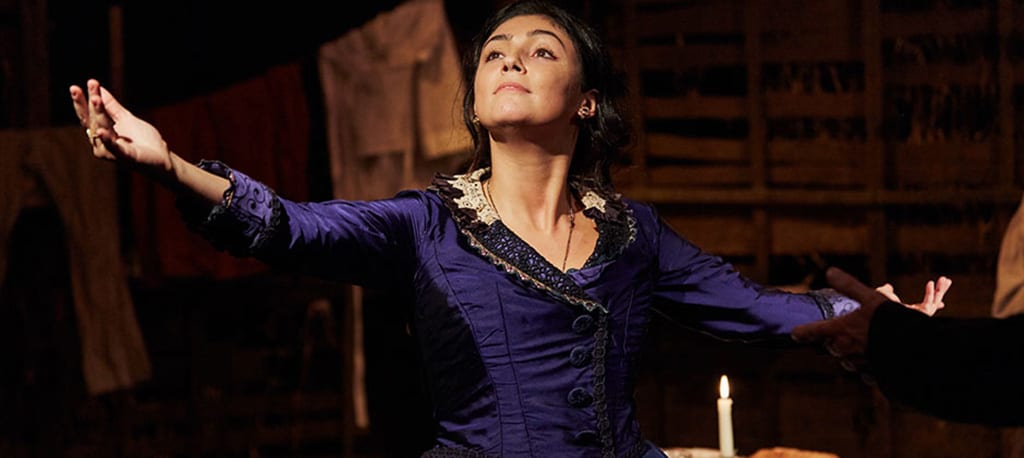100 years ago London’s East End boasted a popular Yiddish theatre scene, now largely forgotten. Pulling off another spectacularly original revival the Finborough Theatre have unearthed a classic example from this genre, Treasure by David Pinksi which is part moralistic fable part observant social comedy.
Set in rural Russia at the turn of the century Treasure tells the story of Tille (Olivia Bernstone) the beautiful daughter of a dirt poor gravedigger (James Pearse) and his wife (Fiz Marcus). When her disabled brother (Sid Sagar) finds a handful of gold coins by the wayside the lives of the poverty stricken family are turned upside as they fight ruthlessly among themselves for possession of the treasure. Worst still Tille takes as much of it as she can and goes on a reckless spending spree so that very soon rumours are circulating in the close-knit community of their village that the family are sitting on a vast fortune and visitors start knocking hoping for their slice of the jackpot.
A huge ensemble cast support, doubling up roles and beautifully evoking the echo of a once commonplace turn of the century Jewish community now lost forever. There are perhaps one too many actors for the Finborough’s tiny stage and occasional moments of overacting as the situation of the protagonists becomes increasingly farcical. Bernstone is sassily entertaining as the wily Tille who fearlessly and brazenly lies her way through an ever increasing series of tense encounters with the local townsfolk. Pearse and Marcus are an hilarious double act as her anxiety ridden parents and Sagar is endearing as her brother, despite facing a difficult task in pulling off Pinski’s slightly cack-handed attempt at writing a realistic disabled character. As Tille leads the family down a slippery slope to ruin and desolation the family come to learn that money often leads to more problems than it solves.
Ludwig Lewisohn’s translation retains some slightly jarring formalities from the original language where actors talk about each other as she or he directly. In a vibrant adaption for which he should largely be commended Colin Chambers makes one annoying error by not cutting an unnecessary scene from the ending. The dead in the graveyard in which the treasure is believed to be come back to life to remind us that all wealth is ultimately meaningless against the face of fleeting mortality. Sadly the language in this final scene is meandering and turgid where it should be ethereal and profound.
Apart from these failings however Pinski’s work is a highly entertaining satire which successfully reveals universal human weakness through caricature.

